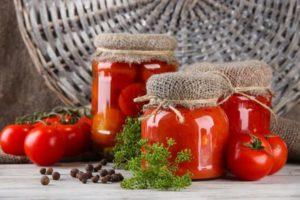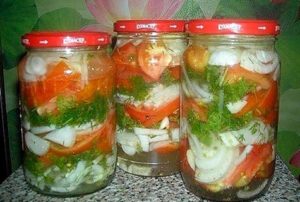7 best sauerkraut recipes with beets
A winter sauerkraut and beetroot snack is a healthy preparation, which contains many vitamins. The list of recipes is varied, but they all differ in their simple preparation, if you know the subtleties and features. In any case, the dish turns out to be incredibly tasty, it is stored for a long time, does not lose its nutritional qualities, if you follow the rules of preparation.
Features of harvesting sauerkraut with beets for the winter
The use of beets in fermentation not only gives the appetizer a beautiful burgundy color, but also enriches it with unique beneficial substances that are contained only in this root vegetable, in particular, the unique vitamin U.
But it should be noted that sauerkraut is not so crispy with beets, so some rules should be followed.
How to choose and prepare vegetables
It is better to take winter varieties of cabbage for pickling, so they begin to pick it up in late September - early October.
The tighter and tighter the head of cabbage, the better.
By that time, the beets should also be fully ripe, since it is undesirable to use young root crops.
The upper leaves from the heads of cabbage must be removed, the beets must be washed and the peel cut off with a knife. Further, depending on the selected recipe:
- Chop the cabbage and grate the beets.
- Cut the head of cabbage in half, cut the stump and cut into small pieces of 3-7 cm, and cut the beets into thin circles or cubes.
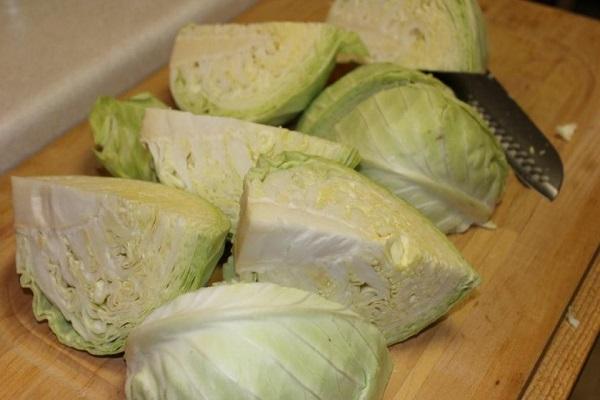
How to properly prepare containers
Previously, oak barrels were used for pickling cabbage. Later they were replaced by glazed ceramic or metal with enamel coating. Modern housewives ferment it in 2 or 3 liter glass jars. To fill 1 liter, you will need about 1 kg of finely chopped cabbage.
Whatever container is used for fermentation, it is recommended to rinse it thoroughly with soda, and then rinse. In addition, it is recommended to grease the inside of the container with honey, vegetable oil or vinegar.
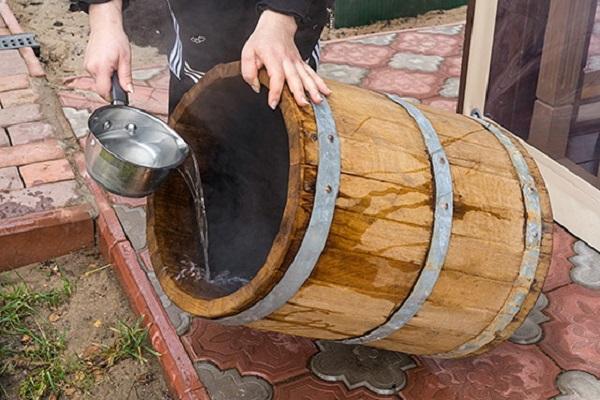
The best recipes
Cabbage and beetroot snack is loved by peoples of different countries and some of them have their own national recipes.
Sauerkraut with large pieces of beetroot
You can ferment cabbage in large chunks with or without vinegar, depending on personal preference. In the first case, the cans can be hermetically rolled up, which will increase the shelf life of the snack.But the second method is more preferable for those who follow a healthy diet.
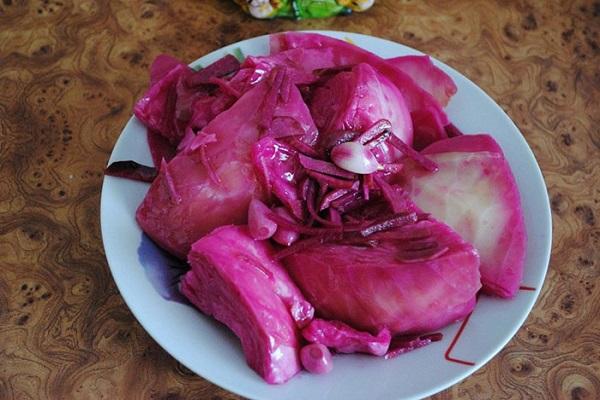
Sauerkraut with beets in a jar
This is one of the simplest and most popular recipes.
How to cook:
- Put beets, cut into small cubes, on the bottom of a glass three-liter jar.
- Separately chop the cabbage and grate the carrots as in the classic recipe.
- Stir chopped vegetables with salt in a bowl and place them in a jar, lightly tamping each new layer 2-3 cm thick.
- Cover with gauze and place the jar on a plate, into which the juice formed during fermentation will drain.
The vegetable mixture should be pierced daily with a long wooden stick to release gas.
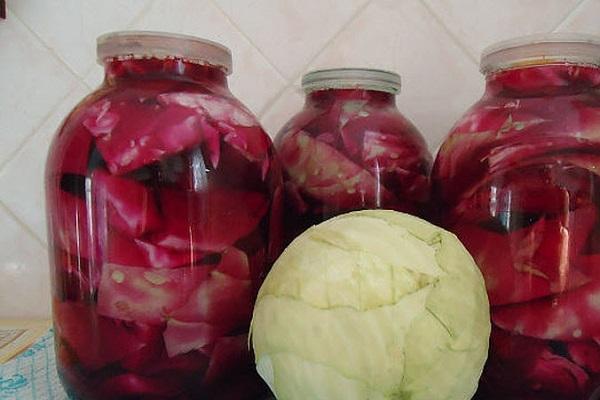
Instant recipe
An appetizer will quickly acquire the sourness inherent in sauerkraut if you use vinegar, and it is better to take apple cider vinegar for this purpose. Prepare the marinade by boiling water with salt, black peppercorns, bay leaves and a little vegetable oil. Pour vinegar into the boiling mixture before turning off the heat.
For 1 liter of water:
- 2 tbsp. l. salt;
- 1 tbsp. l. refined vegetable oil;
- 6 tbsp. l. 9% vinegar;
- 3-5 peas of black pepper;
- 1-3 bay leaves.
Put cabbage, slices of beets and garlic, spicy herbs, slightly mashed in your hands, into a container. Cover with hot marinade. A day later, a quick snack is ready to eat.
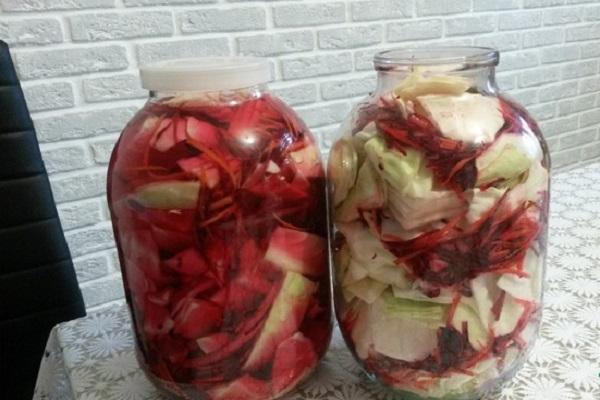
In Georgian
The peculiarity of the Georgian snack is that first you need to boil water with salt and spices and cool the resulting marinade.
Cut the head of cabbage into slices, and the beets into slices. The proportions of cabbage and beets are approximately 3: 1.
You will also need:
- celery greens - 1-2 bunches;
- garlic - 1-3 heads, cut into thin slices;
- hot pepper - 1-2 pods, seeded and cut into circles.
Put cabbage and beets in layers in a jar, sprinkle with herbs and spices, pour cooled brine and press down on top with a small load. Leave for several days in a warm place until the end of the fermentation process.
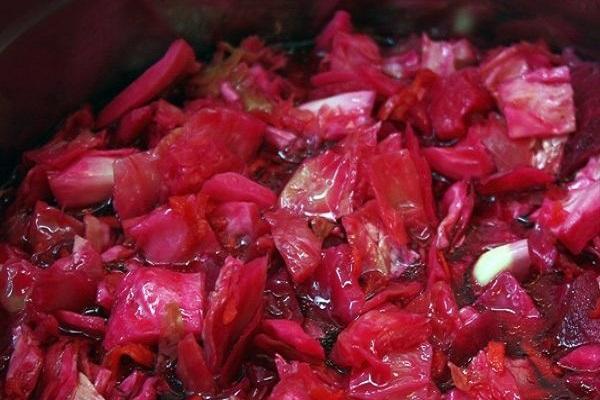
In armenian
This recipe is very similar to the Georgian one, only you need to supplement it with carrots and cilantro. Vinegar is also not included in it, and for flavoring, take a little cinnamon.
In korean
Korean sauerkraut has a spicy taste, hot pepper is added to it, and in addition, the marinade is prepared with vinegar.
The vegetables are prepared in the usual way and placed in jars along with the garlic. Pour in hot marinade and allow to cool. After a short amount of time, this snack is ready to eat.
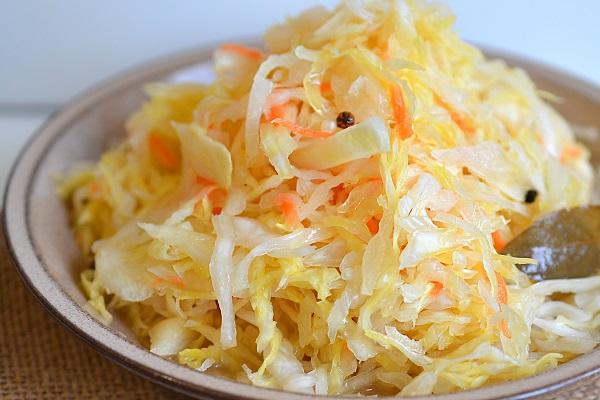
In Gurian
The Gurian recipe is a variation of the Georgian one, the difference being the use of a hot marinade instead of a cold one. Pieces of cabbage interspersed with slices of beets and cloves of garlic, pour hot marinade and after cooling, store in a cool place.
Terms and conditions of storage
Depending on whether the snack is prepared with or without vinegar, its shelf life will be different. Pickled vegetables can be safely stored in a cool, shaded place for a year. But if vinegar is not specified in the recipe, then by spring the cabbage sauerkraut in its own juice becomes more sour and softer. Its shelf life can be increased by keeping it in the refrigerator, but not in the freezer.
